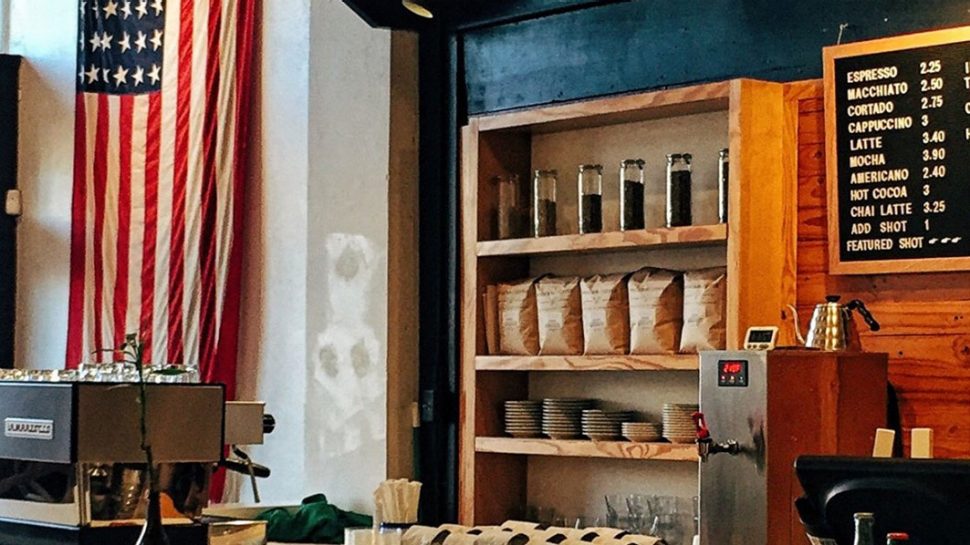Tipping in America made simple
The headlines don’t look good – ‘When it comes to tipping, Aussies are tightwads’, declares Traveller.com.au. This, following on from a previous article in the same publication titled ‘‘Australians are the worst’: tips on tipping in the US’.

‘What does the rest of the world think of Aussie travellers?’ asks News.com.au before acknowledging that our reputation as clueless (or wilfully ignorant) tippers precedes us.
So there’s the question: are we really that bad at tipping when we visit the United States? If so, what can we do about it? If not, why is this perception so widespread?
After all, it’s not just an issue of wounded pride for Australians, it’s a serious topic for people working in the US service industry. In fact, there’s a community on popular online message board Reddit dedicated to the experiences of service staff, mainly in America, on the topic of tipping.
“This does not need to be a vent for your anger and frustration!” says the welcome message on the Tales From Your Server forum, “Tell us about the good times too!” it adds, hopefully.
To get to the bottom of this, we spoke to Zachary Wayne Brewster, an Assistant Professor at Wayne State University who has produced some fascinating research on the interface of race, ethnicity and social stratification, particularly as it applies to the service industry.
For an Australian perspective, we also spoke to Ben Nugent, an ex-pat from Melbourne who’s been living and working in the tech industry in New York City for the last year.
Below are their responses to common questions about tipping in the States.
I have no idea about the basics of tipping – where do I start?
Dr Zachary Wayne Brewster cuts right to the chase.
“First, absent a large scale abolition of the custom of tipping in the US, I would recommend that visitors from non-tipping cultures like Australia, familiarise themselves with the norms that govern tipping practices in the United States and tip accordingly. For example, 15 to 20 percent of the bill if the service was satisfactory.”
Australian ex-pat Nugent backs him up.
“In restaurants, go for 15 to 20 per cent. No need to tip if you do takeaway or have to order from a counter – but feel free to drop some change into the tip jar. In bars, it’s $1 per drink if you order from the bartender. Just leave cash on the bar. If you get table service in a bar, the restaurant rules apply.”
Are there any unusual tipping situations I should watch out for?
“The worst one is at the hairdresser’s: 20 per cent if you plan on coming back, 10 per cent if you don’t,” says Nugent. “I mean, how are you supposed to know on the spot? There are too many variables with a haircut, like how it will grow out.”
Why do we have to tip anyway?
Ultimately, it’s a response to a different labour market in the United States.
“[Hospitality] employees in the US are typically paid below the federal minimum wage. Many significantly below $2.13 per hour, for example. And as such they rely on consumers to compensate them for their labor,” says Brewster.
“I am not suggesting that I think this is a desirable remuneration system but it is nevertheless the reality across many service occupations in the United States.”
Where does the idea that Australians are bad tippers come from?
“Australian travellers love to tell people that Australians don’t tip,” says Nugent. “This is weird. Most countries outside of North America don’t tip either. I don’t think we’re necessarily worse than travellers from other non-tipping countries, but we draw attention to it.”
Do American servers assume that I’m not going to tip well because I’m Australian? Am I going to get inferior service in anticipation of this?
Brewster says that there’s nothing to worry about here.
“Australians and other visitors from non-tipping cultures are going to receive satisfactory service in US full-service restaurants. This is the case even if they encounter a server who thinks that foreign visitors tend to tip less than average – that is, 15 to 20 per cent of the bill.”
In the end, Brewster’s studies indicate that people working in hospitality are driven to provide fair service to anyone they deal with. They do this, regardless of any stereotypes surrounding the patron.
“While many servers may engage in a cost–benefit analysis when deciding how much attention to devote to a table, many others refrain from doing so and provide high quality service to all of their tables irrespective of their predictions of customers’ tipping intentions,” he says.
“Results from a recent study speak to this point. We find that many servers have a strong moral commitment to providing equitable service.”
Interested in travelling to the United States? Have a look at 5 underrated US cities you may want to visit.
